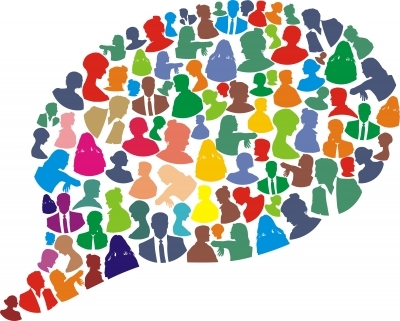Whatever happens and whoever wins the Presidential election on Tuesday, there is a fundamental challenge that lies ahead. We (Americans) need to wake up next Wednesday morning and make a commitment to begin a dramatically improved national dialogue. Of all the challenges that have been pointed out repeatedly in this presidential campaign there is one, never mentioned but ever present, that undermines our ability to address all others. Put simply, we have lost the ability to dialogue with one another, to listen to one another, to see each other as compatriots with common challenges that we need to face together. I'm not just talking about politicians - I mean all of us. And if we don't overcome this challenge, then addressing the others becomes a futile endeavor.

I am not the first to point out that the two major party candidates have not been the poster-persons for effective dialogue. In fact, their inability to dialogue, combined with often hyperbolic and misdirected media coverage, has seriously impeded Americans' ability to assess the issues and make an informed decision. Some of that can be explained by the fact that political races are inherently adversarial. Much can also be attributed to the candidates' personal styles that the majority of American people on all sides have found unappealing at best. But the problem isn't about any one candidate or party. And no one politician, not even the President, can remedy the collective insensitivity that we have nurtured and which could become the key to our undoing.
When I look at what's been in the news over the past year, I see example after example of the overwhelmingly complex challenges that we face as a country. And it seems for every complex problem, the politicians, the media, and perhaps many of us propose simple solutions that clearly will not fix the problem:
If healthcare is too expensive, we'll throw out the Affordable Care Act and replace it with ... well, with something.
If ISIS is our greatest threat, we'll carpet bomb cities where ISIS exists and make immigration off limits to certain religious groups.
If many countries in the Middle East have devolved into chaos, we'll use force to topple another dictator and see how that works - it's worked so well up until now.
If the debt is now $19 trillion, we will just tax the rich and it won't affect the rest of us.
If the cost of college tuition has gotten out of control, we'll make public universities free and eliminate college debt (... while not increasing the national debt of course).
If people want to protect the unborn, we'll outlaw abortion and defund Planned Parenthood making birth control and women's health care less accessible.
If there's another tragic mass shooting we'll start shouting about our love / hate of guns - and will do so before we've spent even a single day mourning together the terrible loss of life.
For every complex challenge we face, let's bring on the simple solution. And more importantly, let's dismiss the other guy's point of view as not only wrong-headed, but un-American. By doing so, we are able to achieve what social psychologist Arie Kruglanski called "cognitive closure." Closure, according to Daniele Anastation in her New York Times piece The Price of Certainty, is the moment that you make a decision or form a judgment and literally closes your mind to new information. In Anastation's video, Dr. Kruglanski explains why we often need closure in making small, day-to-day decisions, but also, the negative outcomes that can accompany a haste to closure when simple solutions don't suffice.
There are important issues where many, perhaps most, Americans do find common ground: promoting racial, religious and ethnic equality, achieving a more equitable distribution of wealth, finding ways to make health care and higher education more affordable, reducing gun violence, and finding solutions for peace in complex global conflicts. While these challenges present the potential for finding common ground and therefore forward movement, when we engage in such issues it seems we quickly devolve into right-wrong, win-lose positions. The loudest voice feels they have "won" the argument in spite of the fact that the problems remain unsolved. Our political system is the place where this is perhaps the most public and evident.
The art of dialogue has been lost, and we need to rebuild this capacity at all levels. What characterizes good dialogue?
•Starting with the belief that we are colleagues in a mutual endeavor, not competitors and certainly not enemies, when we begin to flesh out our understanding of a problem. Believing that those with whom we dialogue on such issues are part of our larger shared community.
•Acknowledging that understanding a problem in all its complexity doesn't simply tolerate divergent thinking, that it requires it. Differences of opinion in tackling complex problems aren't our enemy; they're our allies as we seek solutions to our most vexing challenges.
•Knowing that listening - not talking over others as we constantly observe in political debates and on evening "news shows" - is the key to building the understanding, relationships, and communities that can address important societal ills.
Building the skills for effective dialogue is also building the foundation for effective families, neighborhoods, schools, workplaces and communities. Only when we build this crucial capacity to dialogue can we begin to address our complex societal problems and rebuild the promise of America.
